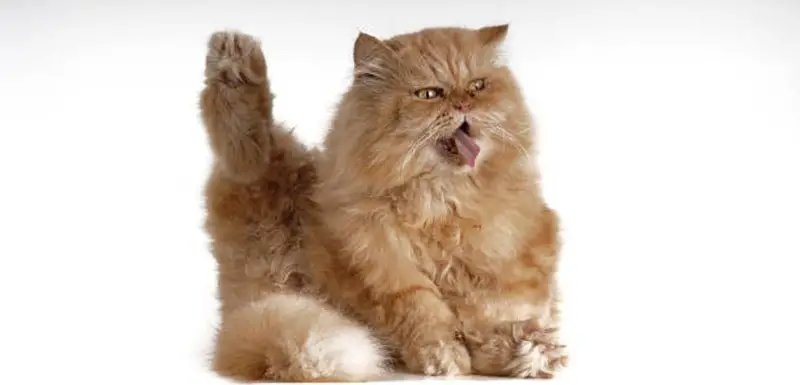
Not all cats can be knock kneed. It depends on the cat’s breed and its build.
What Is Luxating Patella In Cats?
Luxating patella is a condition that affects the kneecap. The kneecap is called the patella and it has to move freely in the groove of the knee joint. This allows your cat to walk, run, jump, and climb stairs easily. When this movement becomes restricted or moves out of its normal location, it can lead to other problems like pain in the knee and ligament injuries.
Can Cats Grow Out Of Luxating Patella?
Cats grow out of luxating patella when they are older, usually around five years old. This means that it should not cause much concern for pet owners who notice their cat has this disorder because it will likely go away as they grow older and their joints change shape.
How Common Is Luxating Patella In Cats?
This condition is fairly common in cats, and occurs in one in four cats that are 6 to 8 years old. It is more common in male cats than female cats, and it’s also more common in overweight or neutered cats as well as those with long fur. Kittens can inherit this condition if one of their parents has it—and the likelihood goes up the more parents that have it.
How Do I Know If My Cat Has A Luxating Patella?
A luxating patella can be detected by confirming if the cat has pain and swelling in his/her back leg, sometimes cannot put weight on that leg, or limps. If you suspect your cat has a luxating patella, contact your veterinarian immediately.
Is Luxating Patella In Cats Painful?
Yes, and the most common sign of luxating patella is a pain in the back of the knee. Cats with luxating patella will often limp and show signs of pain on the back of their knees. It can also be difficult for them to climb stairs or jump up on things like furniture.
Can Luxating Patella Correct Itself?
For many cats, luxating patella resolves on its own after six months to three years as the cat’s leg grows. Rarely, it can be passed from one generation to another and become more serious with age.
What Breeds Are Most Likely To Get Luxating Patellas?
The most common patellar luxation in adult cats is posterior patellar luxation, also known as slipped or jammy kitty syndrome. This disorder can be seen in any breed but seems to be more prevalent in medium-sized cats.
At What Age Does Luxating Patella Start?
The average age at which luxating patella starts is 3.7 years old. The patella is the knee-cap, and with luxating patella, it can slip and relocate from its normal position. Sometimes this can happen during physical activities such as running or jumping, but in most cases the condition does not cause any pain.
What Causes Luxating Patella In Cats?
The condition can be caused by a severe injury or trauma and results in sudden pain, lameness, and reduced mobility of the affected leg.
Can A Cat Live With Luxating Patella?
Cats can live with luxating patella but it’s not easy for them to do so as there are some limitations that come along with it. Cats cannot jump as high or run like they used to be able to before, and they also may need surgery or medication to treat it.
How Long Does Luxating Patella Take To Heal?
A luxated patella does not always need surgery and because of this, it will take longer to heal than other injuries. It usually takes about 10 weeks for the kneecap to heal and return to its normal position but sometimes it can take up to 12 months.
Does Pet Insurance Cover Luxating Patella Surgery?
Banfield Pet Hospital offers reimbursement on luxating patella surgery if the pet owner’s insurance does not cover the procedure. It is important to note that this only applies to Banfield-owned and operated hospitals.
Does Luxating Patella Get Worse Over Time?
Researchers believe that it does get worse over time, but this can be hard to detect since it only becomes more problematic as time goes on.
Do Knee Braces Work For Luxating Patella?
Knee braces help realign and reduce dislocated kneecaps by providing continuous gentle pressure around the knee joint. The brace will provide support to stabilize the knee, preventing it from slipping out of place again.
Is A Luxating Patella Genetic
Luxating patella is the dislocation of the kneecap, which can cause a great deal of pain and discomfort for your cat. It can happen for many reasons. In some cases, it is genetic and runs in families.
Does Glucosamine Help Luxating Patella?
Glucosamine may help with patella luxation and should be considered as a supplement for treatment, especially in the event of early signs of arthritis.
